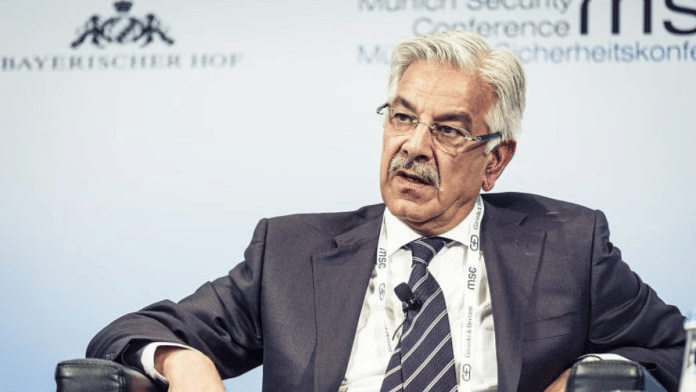New Delhi: Pakistan Defence Minister Khawaja Asif has declared the 1972 Simla Agreement “a dead document”, signalling a return to a multilateral approach to the Kashmir dispute, and a departure from decades of bilateral engagement with India. Pakistan no longer considers the bilateral framework with India viable and “going forward, these disputes will be dealt with multilaterally or internationally”, Asif said, citing strained relations.
However, Pakistan’s foreign ministry said Thursday that no decision had been made to revoke bilateral agreements with India.
The minister told a private television channel Wednesday that Pakistan has reverted to the position held in 1948, when the United Nations recognised the Line of Control (LoC) as a ceasefire line rather than a de facto border. “The Simla Agreement is now a dead document. We are back to the 1948 position, when the United Nations declared the LoC a ceasefire line, following the ceasefire and resolutions,” he said.
Asif’s remarks come amid heightened tensions between the nuclear-armed neighbours, and following the military hostilities along the LoC and International Border last month in the wake of the launch of Operation Sindoor by India in retaliation to the 22 April Pahalgam terror attack.
Asif also cast doubt on the durability of other longstanding agreements with India—“whether the Indus Waters Treaty is suspended or not, Simla is already over.”
Signed in the aftermath of the 1971 India-Pakistan war, the Simla Agreement was intended to serve as a cornerstone of peaceful dispute resolution between the two nations, committing both to resolving issues via bilateral dialogue—a principle India continues to uphold.
Asif also addressed Pakistan’s nuclear posture, asserting that the country remains on high alert. He said that nuclear weapons would only be considered in the event of a “direct threat” to Pakistan’s existence.
Speaking about the rising regional tensions, the Pakistan defence minister warned that the threat of conflict with India remains real. “Pakistan does not seek war, but if it is forced upon us, our response will be stronger than ever before.”
He revealed that Islamabad had consulted with key regional and international stakeholders, including Gulf allies and China, and had briefed the United Kingdom and the United States on the situation. “Some of our friends in the Arabian Gulf have talked to both sides,” he said, without naming any countries.
(Edited by Mannat Chugh)
Also Read: Amid India’s bid to fix onus for Pahalgam, Pakistan made vice-chair of UNSC counter-terrorism panel






